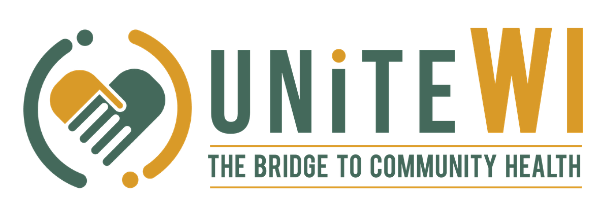15 Minutes with Bria Grant
What is the overall purpose of UniteMKE?
Most of our work is to improve social justice outcomes in [Milwaukee]. Most of our health work is done to improve whole-health status for our residents and increase integrated health care for residents. About 80 percent of health is addressing the social environment, such as increased stressors, and to make sure our residents have access to services to address social determinants of health needs. We want to partner with clinics and health care providers, and communicate with them so they can provide better care and streamline their focus during the patient visit.
How do you do that?
It really is a wonderful team effort. The time spent with patients is decreasing for providers, and physicians just want to be physicians. If you tell me as a physician that you don’t have housing, what can I do for you as a provider? Our coordinators make appropriate referrals. They know how to secure emergency dollars for housing (and other supportive services) and do the things they need to do.
What is your personal mission?
A lot of the foundation I have, when you talk about Love in Action, [UniteMKE] is that [philosophy]. From the very beginning, I invoked my Love in Action people. They were community health workers without that official term. They did all of this without the technology. I was a mental health counselor and the motto there was, “Nobody is tossed away.” You make it work.
How can we do a better job of providing mental health services in underserved communities?
We really like to remind people that this concept isn’t new when it relates to care coordination; it really is the concept of “the village.” And we think about all the things that have been done to disenfranchise and annihilate a whole population and they’re still here. The secret is being able to take care of your own. So when we talk about mental health, it’s the same concept.
You have worked with many young people during your career. What challenges are they facing?
There are so many. I think one of the things is, of course, family structure, because overall the stability of our families is greatly impacting our young people. And in some ways they are forced into adulthood because of some of the assumptions that are placed on them.
Are you optimistic about Milwaukee’s future?
I am really optimistic. I believe we’re on the cusp of turning around a lot of our statistics [in areas such as] birth outcomes, academic performance and the highest rate of incarceration per capita in the world. I see us being able to address those issues, and being a little more focused on chronic conditions and our health … Being able to highlight Milwaukee during the [Democratic National Convention] is going to motivate some great outcomes for the city. MKE

